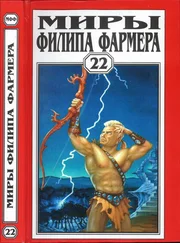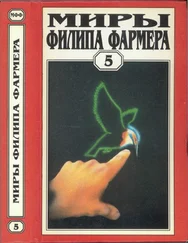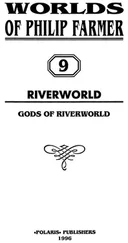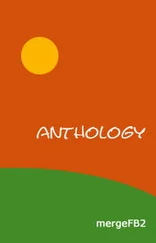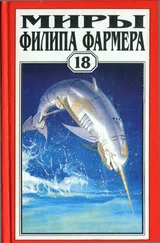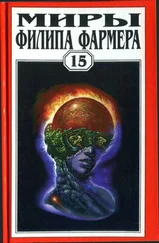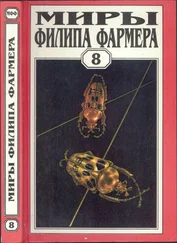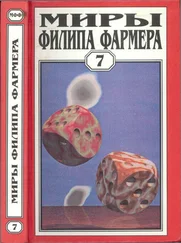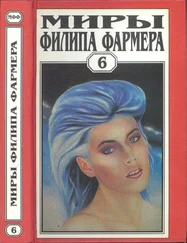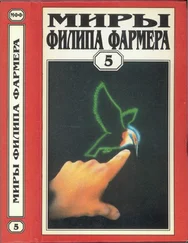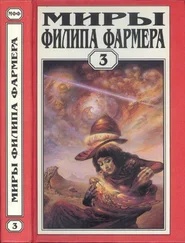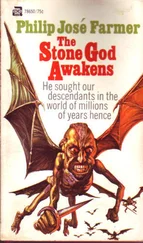Филип Фармер - The Lovers
Здесь есть возможность читать онлайн «Филип Фармер - The Lovers» весь текст электронной книги совершенно бесплатно (целиком полную версию без сокращений). В некоторых случаях можно слушать аудио, скачать через торрент в формате fb2 и присутствует краткое содержание. Жанр: Фантастика и фэнтези, на английском языке. Описание произведения, (предисловие) а так же отзывы посетителей доступны на портале библиотеки ЛибКат.
- Название:The Lovers
- Автор:
- Жанр:
- Год:неизвестен
- ISBN:нет данных
- Рейтинг книги:5 / 5. Голосов: 1
-
Избранное:Добавить в избранное
- Отзывы:
-
Ваша оценка:
- 100
- 1
- 2
- 3
- 4
- 5
The Lovers: краткое содержание, описание и аннотация
Предлагаем к чтению аннотацию, описание, краткое содержание или предисловие (зависит от того, что написал сам автор книги «The Lovers»). Если вы не нашли необходимую информацию о книге — напишите в комментариях, мы постараемся отыскать её.
The Lovers — читать онлайн бесплатно полную книгу (весь текст) целиком
Ниже представлен текст книги, разбитый по страницам. Система сохранения места последней прочитанной страницы, позволяет с удобством читать онлайн бесплатно книгу «The Lovers», без необходимости каждый раз заново искать на чём Вы остановились. Поставьте закладку, и сможете в любой момент перейти на страницу, на которой закончили чтение.
Интервал:
Закладка:
'Your hair is auburn. Somehow, this information becomes known to the bank. The bank then rejects the other genes controlling other colors of hair. The 'auburn' gene is duplicated and attached to the zygote's genetic makeup. And so with the other genes that fix the other features of the face-to-be. The shape of the nose-modified to be feminine-is selected by choosing the correct combination of genes in the bank. This is duplicated, and the duplicates are then incorporated into the zygote–'
'You hear that?' shouted Macneff in an exultant voice. 'You have begat larvae! Monsters of an unholy unreal union! Insect children! And they will have your face as witness of this revolting carnality–'
'Of course, I am no connoisseur of human features, Fobo interrupted. 'But the young man's strike me as vigorous and handsome. In a human way, you understand.'
He turned to Hal. 'Now you see why Jeannette desired light. And why she pretended alcoholism. As long as she had enough liquor before copulation, the photokinetic nerve – very susceptible to alcohol – would be anesthetized. Thus, orgasm but no pregnancy. No death from the life within her. But when you diluted the beetlejuice with Easyglow... unknowing, of course–'
Macneff burst into a high-pitched laughter. 'What irony! Truly it has been said that the wages of unrealism are death!'
Fobo spoke loudly. 'Go ahead, Hal. Cry, if you like. You'll feel better. You can't, eh? I wish you could.
'Very well, I continue. The lalitha, no matter how human she looks, cannot escape her arthropod heritage. The nymphs that develop from the larvae can easily pass for babies, but it would pain you to see the larvae themselves. Though they are not any uglier than a five months' human embryo. Not to me, anyway.
'It is a sad thing that the lalitha mother must die. Hundreds of millions of years ago, when a primitive pseudoarthropod was ready to hatch the eggs in her womb, a hormone was released in her body. It calcified the skin and turned her into a womb-tomb. She became a shell. Her larvae ate the organs and the bones, which were softened by the draining away of their calcium. When the young had fulfilled the function of the larva, which is to eat and grow, they rested and became nymphs. Then they broke the shell in its weak place in the belly.
'That weak point is the navel. It alone does not calcify with the epidermis but remains soft. By the time the nymphs are ready to come out, the soft flesh of the navel has decayed. Its dissolution lets loose a chemical which decalcifies an area that takes in most of the abdomen. The nymphs, though weak as human babies and much smaller, are activated by instinct to kick out the thin and brittle covering.
'You must understand, Hal, that the navel itself is both functional and mimetic. Since the larvae are not connected to the mother by an umbilical cord, they would have no navel. But they grow an excrescence that resembles one.
'The breasts of the adult also have two functions. Like the human female's, they are both sexual and reproductive. They never produce milk, of course, but they are glands. At the time the larvae are ready to hatch from the eggs, the breasts act as two powerful pumps of the hormone which carries out the hardening of the skin.
'Nothing wasted, you see – Nature's economy. The things that enable her to survive in human society also carry out the death process.'
'I can understand the need for photogenes in the humanoid stage of evolution,' Hal said. 'But when the lalitha were in the animal stage of evolution, why should they need to reproduce the characteristics of the father's face? There isn't much difference between the face of a male animal and a female animal of the same species.'
'I do not know,' said Fobo. 'Perhaps, the prehuman lalitha did not utilize the photokinetic nerves. Perhaps, those nerves are an evolutionary adaptation of an existing structure which had a different function. Or a vestigial function. There is some evidence that photokinesis was the means by which the lalitha changed her body to conform with the change in the human body as it passed up the evolutionary ladder. It seems reasonable to suppose that the lalitha needed such a biological device. If the photokinetic nerves were not involved, some other organ may have been. It is unfortunate that by the time we were advanced enough to scientifically study the lalitha, we had no specimens available. Finding Jeannette was pure luck. We did discover in her several organs whose functions remain a mystery to us. We need many of her kind for fruitful research.'
'One more question,' said Hal. 'What if a lalitha had more than one lover? Whose features would her baby have?'
'If a lalitha were raped by a gang, she would not have an orgasm because the negative emotions of fear and disgust would bar it. If she had more than one lover – and she weren't drinking alcohol – she would reproduce young whose features would be those of the first lover. By the time she lay with her second lover – even if it were immediately afterward – the complete fertilization would have already been initiated.'
Sorrowfully, Fobo shook his head.
'It is a sad thing, but it has not changed in all these epochs. The mothers must give their lives for their young. Yet Nature, as a sort of recompense, has given them a gift. On the analogy of reptiles, which, it is said, do not stop growing larger as long as they are alive, the lalitha will not die if they remain unpregnant. And so–'
Hal leaped to his feet and shouted, 'Stop it!'
'I'm sorry,' Fobo said softly. 'I'm just trying to make you see why Jeannette felt that she couldn't tell you what she truly was. She must have loved you, Hal. She possessed the three factors that make love: a genuine passion, a deep affection, and the feeling of being one flesh with you, male and female so inseparable it would be hard to tell where one began and the other ended. I know she did, believe me, for we empathists can put ourselves into somebody else's nervous system and think and feel as they do.
'Yet, Jeannette must have had a bitter leaven in her love. The belief that if you knew she was of an utterly alien branch of the animal kingdom, separated by millions of years of evolution, barred by her ancestry and anatomy from the true completion of marriage-children-you would turn from her with horror. That belief must have shot with darkness even her brightest moments–'
'No! I would have loved her anyway! It might have been a shock. But I'd have gotten over it. Why, she was human; she was more human than any woman I've known!'
Macneff sounded as if he were going to retch. When he had recovered himself, he howled, 'You abysmal thing! How can you stand yourself now that you know what utterly filthy monster you have lain with! Why don't you try to tear out your eyes, which have seen that vile filth! Why don't you bite off your lips, which have kissed that insect mouth! Why don't you cut off your hands, which have pawed with loathsome lust that mockery of a body! Why don't you tear out by the roots those organs of carnal–'
Fobo spoke through the storm of wrath. 'Macneff! Macneff!'
The gaunt head swiveled toward the empathist. His eyes stared, and his lips had drawn back into what seemed to be an impossibly large smile; a smile of absolute fury.
'What? What?' he muttered, like a man waking from sleep.
'Macneff, I know your type well. Are you sure you weren't planning on taking the lalitha alive and using her for your own sensual purposes? Doesn't most of your fury and disgust result from being balked in your desires? After all, you've not had a woman for a year, and...'
The Sandalphon's jaw fell. Bed flooded his face and became purple. The violent color faded, and a corpselike white replaced it.
Читать дальшеИнтервал:
Закладка:
Похожие книги на «The Lovers»
Представляем Вашему вниманию похожие книги на «The Lovers» списком для выбора. Мы отобрали схожую по названию и смыслу литературу в надежде предоставить читателям больше вариантов отыскать новые, интересные, ещё непрочитанные произведения.
Обсуждение, отзывы о книге «The Lovers» и просто собственные мнения читателей. Оставьте ваши комментарии, напишите, что Вы думаете о произведении, его смысле или главных героях. Укажите что конкретно понравилось, а что нет, и почему Вы так считаете.

